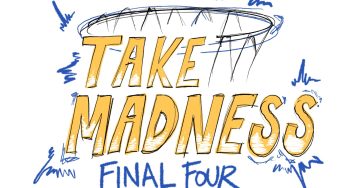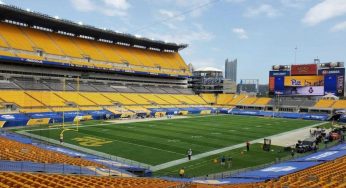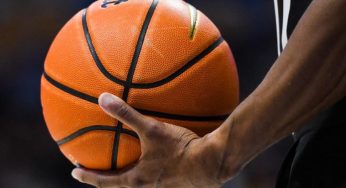Editorial: Buzzkill: Caffeine and alcohol an unsafe combo
Move over, mixed drinks and beer. Some drinkers, particularly younger adults, want their alcohol with some extra kick in it, and no, not necessarily copious amounts of sugar. They prefer drinks that combine alcohol and caffeine.
These drinks might not be as common amid college parties as keg beer, but according to a study from Wake Forest University, more than a quarter of college kids reach for the caffeinated cans when they party. But now there are concerns over their safety.
Recently, the Food and Drug Administration told nearly 30 manufacturers that they need to provide scientific evidence that their beverages that combine alcohol and caffeine are safe to consume. Caffeine is not on the FDA’s list of ingredients that can be legally added to alcohol in a manufactured beverage, according to an article from MedPage Today. The FDA has not formerly approved these beverages on the market.
We’re all quite familiar with the health detriments and side effects of drinking alcohol, and there’s concern that the caffeine — a stimulant — in these drinks masks the alcohol’s — a depressant — intoxicating effects. While the body normally becomes fatigued after alcohol consumption, the caffeine counteracts this effect, leaving the body in a state that’s twice as unnatural as normal condition.
Yet caffeine-laden alcohol could also cause the drinker to underestimate his level of intoxication and further distort his already clouded judgment — an obviously dangerous effect.
The manufacturers were given 30 days to show their drinks are safe, otherwise the FDA could take them off the market. Already some beverage producers nixed caffeine-alcohol products from their lineup after taking pressure from attorney generals from over a dozen states — last year, Anheuser-Busch eliminated caffeine from its beverages Bud Extra and Tilt. MillersCoors agreed to pull Sparks — a drink that’s can immitatedthe appearance of traditional, non-alcoholic energy drinks — off the market.
Assuming this investigation results in the elimination of caffeine-laced alcohol products from store shelves, drinkers would still be free to make their own non-manufactured mixes. For example, Red Bull is popularly mixed with vodka. And what about Jagerbombs? It’s undoubtedly easier to pull a few products off the shelves than to implement a blanket ban at bars, restaurants and clubs, but the government might attempt to target these concoctions next.
We’ll get our caffeine fix the next morning, anyway, with coffee, the age-old hangover deterrent — too bad that’s as scientifically effective at fighting hangovers as cold showers.
Recent Posts
Take Madness Final Four | Battle of Pennsylvania, 412 and Just Outside of Philly clash
Welcome to the Final Four of Take Madness! We are down to four talented writers,…
Column | Best Sports Environments in Pittsburgh
Pittsburgh is undoubtedly one of the best sports cities in America. A deeply passionate fanbase…
Chalk is all the talk: Previewing the NCAA men’s Final Four
For the first time since 2008, all four first seeds have made the men’s Final…
The Sweet Sixteen was bittersweet for college basketball diehards
This year’s NCAA tournament is simply madness. With each new round, there is a new…
Four realistic transfers for Pitt men’s basketball
Now that the NCAA Transfer Portal is in full swing, Pitt men’s basketball has the…
Opinion | The academic’s guide to making time for the people you love
As a student who spent all of high school — and now college — determined…




